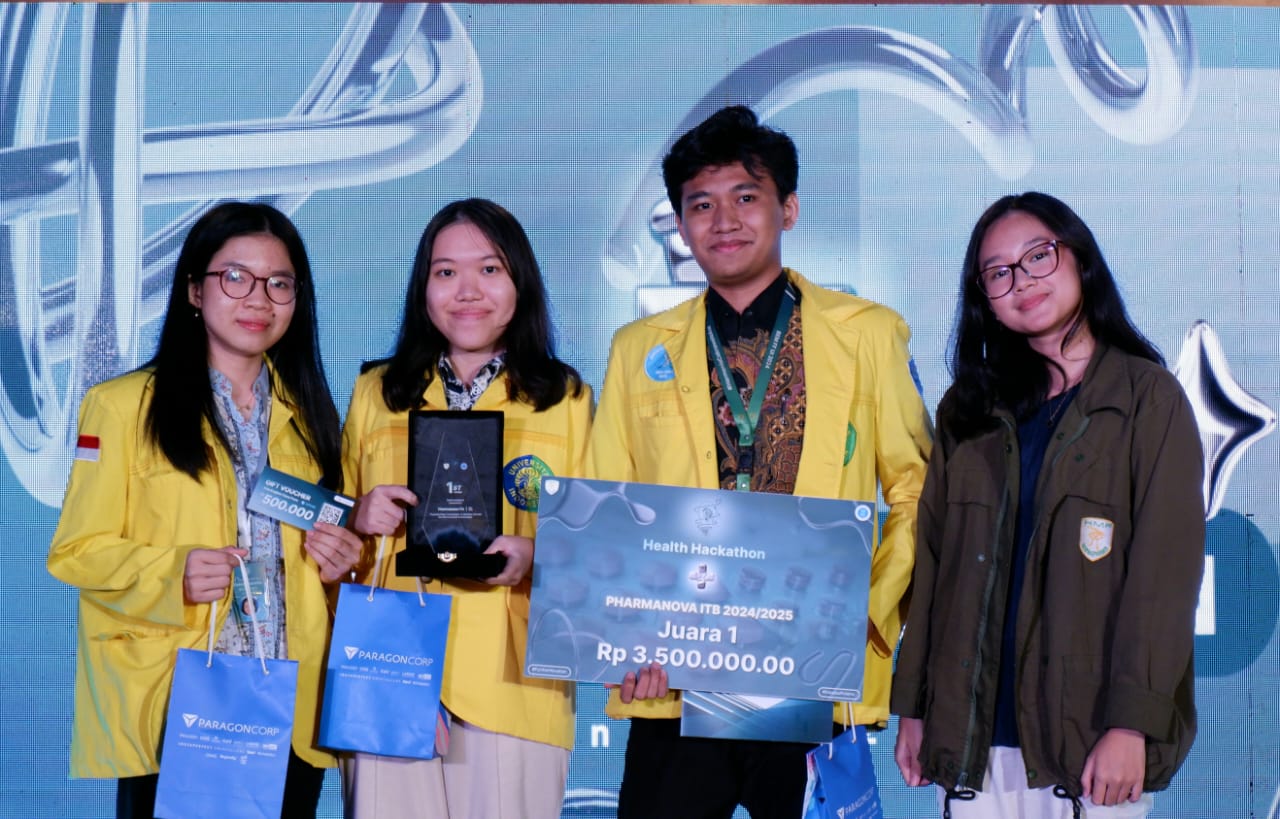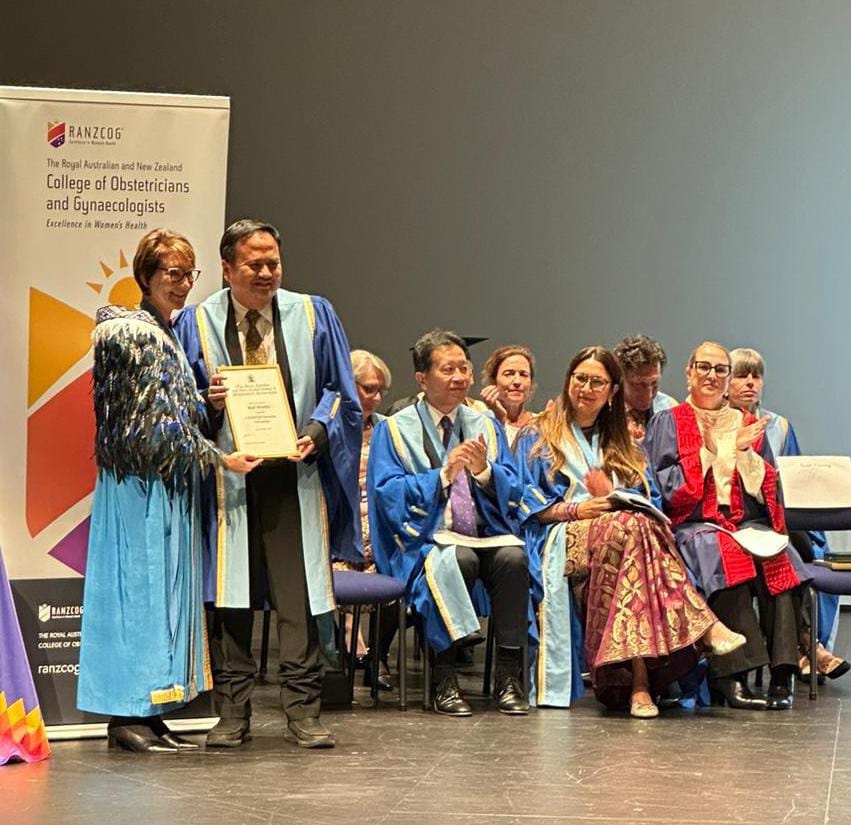Prof. Ir. Sugiharso Safuan, M.E., Ph.D., professor in the field of Monetary Economics and International Finance, Faculty of Economics and Business (FEB) Universitas Indonesia (UI), believes that over the last century or so, the development of economics has made a significant contribution in the development policy making process, including monetary and fiscal policy. He expressed this in his inauguration speech as UI professor, with the speech entitled “Monetary Policy, Central Bank Independence, and Inflation Control: Mainstream Monetary Theory Vs Modern Monetary Theory”. The procession was led by UI Rector Prof. Ari Kuncoro, S.E., M.A., Ph.D. at the Depok Campus, yesterday (Wednesday, 22/11).
Prof. Sugiharso explained the various theories that emerged when the great crisis occurred in 1929. At that time, John Maynard Keynes, an economist from England, believed that the crisis was caused by a lack of aggregate demand. A different opinion came from Milton Friedman – an economist from the United States –, who believed that the major crisis was caused by wrong monetary policy. Moving on from these two different views, Prof. Sugiharso discussed in more depth about Mainstream Monetary Theory (MSMT) and Modern Monetary Theory (MMT), starting from approaches, differences, criticism and implications for controlling inflation.
He explained, “MsMT views inflation as a monetary phenomenon resulting from an excessive supply of money relative to demand for goods and services. This theory is based on the premise that money is an important factor in the economy, hence changes in the money supply can affect price levels, output and employment. This theory has been dominant in macroeconomics for the last few decades to explain various economic phenomena, such as inflation, recession and economic growth.”
However, in 2020 a new monetary economic theory emerged, namely MMT. According to him, this is interesting to analyze because its popularity has attracted the attention of leading economists and some views are very contrary to the views expressed in MsTM.
“MMT is a heterodox economic theory that challenges MsMT’s views on inflation. MMT believes that inflation is caused by supply-side factors, such as cost-push inflation, not monetary factors. Additionally, MMT views central banks as not constrained by the need to balance their budgets. That way, the central bank can create money as needed to finance government spending,” said Prof. Sugiharso.
He also linked the importance of central bank independence, because it allows it to make decisions that are in the best interests of the economy. The implication is that it is able to withstand pressure and increase interest rates. However, maintaining independence to achieve the targets set is quite difficult, especially in countries that are hit by crises or lack stability in the political system in the face of a number of challenges.
Then, Prof. Sugiharso expressed the relevance of central bank independence in a country that is looking for a new leader and its relevance in moving towards a Golden Indonesia 2045. “Reaching the goal of achieving a Golden Indonesia 2045 is a challenge, but worth fighting for. It should be noted that apart from emphasizing investing in education, infrastructure, technology and sustainable development, Indonesia can create a better future for all its citizens. One important element in the long term that is closely related to central bank independence is the commitment to price stability. A stable price level will encourage economic growth and create jobs and the level of social welfare,” said Prof. Sugiharso.
According to him, the future of the world economy will not only be marked by developments in economic growth, inflation, and unemployment, but by the relationship between policy makers in each country see their own responsibilities, between the government as the fiscal authority and the central bank as the monetary authority, in achieving the goals that have been set.
At the inauguration, also present the Member of the Bank Indonesia Supervision Board, Dr. Iskandar Simorangkir, S.E. M.A.; Deputy III Chief of Presidential Staff for Economic Affairs Dr. Ir. Edy Priyono, M.E.; Vice President Commissioner Independent Commissioner of Bank Danamon Dr. Halim Alamsyah S.E., S.H., M.A.; and Member of the National Accreditation Board for Early Childhood Education, Primary Education and Secondary Education Totok Suprayitno, Ph.D.
Prof. Sugiharso received a Supersemar scholarship from the President of the Republic of Indonesia and completed his studies at the Bogor Agricultural Institute, specifically the Department of Social Economics in 1985. Then, he obtained a Master’s degree in Economics at the UI Faculty of Economics in 1990. After that, he succeeded in winning the QUE Project Scholarship from FEUI and World Bank to continue his Postgraduate Diploma (PgDpl.) studies in the field of Monetary Economics and International Finance at the Scottish Doctoral Program at the University of Glasgow, United Kingdom, in 1999. Then, he succeeded in obtaining a Ph.D. in the same field from The University of Southampton, United Kingdom in 2003.
In 2006, Prof. Sugiharso was selected as a Visiting Scholar Grant Recipient at the University of Witzenhausen from DAAD Germany. Then, he received the Award as Best Researcher in the Department of Economics in 2012 and Finalist for Outstanding Lecturer at University level in 2013. Apart from that, Prof. Sugiharso was named the recipient of the Sadli Endowed Professorship Award from the Sadli Foundation and the Universitas Indonesia in 2023.
Some of his research in recent years, entitled Developing The Model of Integrated Social Safety Net Programs Towards Better Financial Well-Being (2023); Digital Financial Inclusion and Implications for Developing Countries Economic Growth (2023); and The Effectiveness of Unconventional Monetary Policy (UMP) on Financial Markets in Indonesia and Malaysia during the Covid-19 Pandemic (2022).



